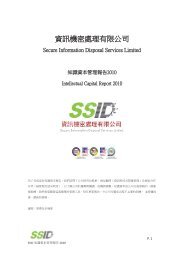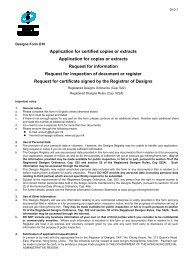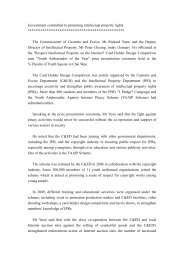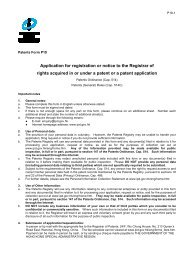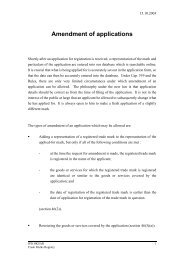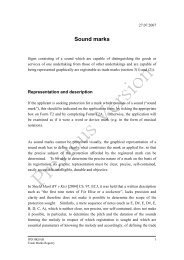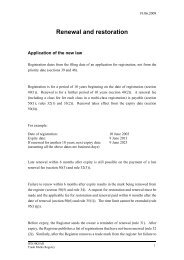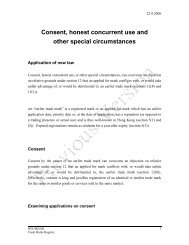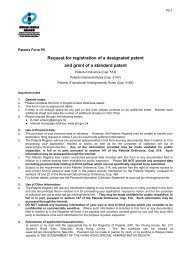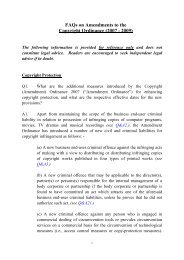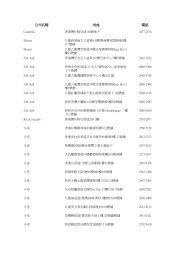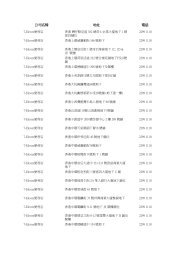Report
Report
Report
Create successful ePaper yourself
Turn your PDF publications into a flip-book with our unique Google optimized e-Paper software.
- 17 -<br />
3.17 More relevant to the present review are economies which<br />
were or are on a similar post-GATT path of economic development as<br />
Hong Kong, such as Taiwan, Korea and Singapore (these four economies<br />
collectively referred to as “Newly Industrialized Asian Economies” by<br />
the Organization for Economic Cooperation and Development).<br />
3.18 Taiwan and Korea adopt an OGP system, with their patent<br />
laws tracing back to 1949 and 1961 respectively. Singapore used to<br />
re-register UK patents and European patents designating the UK. In<br />
1995, Singapore established its current OGP system, with substantive<br />
examination outsourced to other examination authorities. It has recently<br />
passed the Patents (Amendment) Bill which, inter alia, has proposed to<br />
move the OGP system in Singapore from a “self-assessment” to a<br />
“positive grant” patent system. 20 At the same time, the Intellectual<br />
Property Office of Singapore (IPOS) is developing in-house search and<br />
examination capabilities in key technological areas. According to the<br />
website of IPOS, the in-house search and examination (with training<br />
supported by EPO and Japan Patent Office) is expected to start operations<br />
by mid-2013.<br />
3.19 These Asian economies are well-known for their R&D<br />
capabilities. Innovation continues to be an important driver for their<br />
future economic growth. The experiences of Singapore and Korea in<br />
adopting a proactive patent policy have been commended. 21<br />
20<br />
21<br />
Under the “self-assessment” system, patent applications that do not fully meet patentability<br />
requirements, that is, novelty, inventive step, and industrial applicability, can still be granted.<br />
Singapore is moving towards a “positive grant” system, where only applications that fully meet the<br />
patentability requirements can be granted.<br />
See K Idris, “Intellectual Property: A Power Tool for Economic Growth”, WIPO, 2003<br />
(www.wipo.int/freepublications/en/intproperty/888/wipo_pub_888_1.pdf) –<br />
“Using patents for economic development requires a pro-active patent policy (PPP) intrinsically<br />
related to economic development. The experiences of Singapore and the Republic of Korea with<br />
patent policy confirm the importance of a pro-active approach…. Handled properly, patents are<br />
efficient drivers of national innovation, R&D, product creation and business transactions that have<br />
beneficial macro and micro economic effects.” (p.17, emphasis added).



